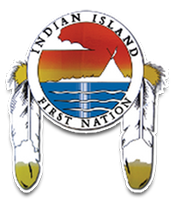Culture and History
The Mi’kmaq are a First Nations band, indigenous to Canada’s Maritime Provinces and the Gaspé Peninsula of Quebec. They call this region Mi’kma’ki. Others today live in Newfoundland and the northeastern region of Maine. The nation has a population of about 40,000 (plus about 25,000 in the Qalipu First Nation in Labrador), of whom nearly 11,000 speak Mi’kmaq, an Eastern Algonquian language . Once written in Mi’kmaq hieroglyphic writing, it is now written using most letters of the standard Latin alphabet. The Grand Council (also known as Santé Mawiómi) was the traditional senior level of government for the Mi’kmaq people until Canada passed the Indian Act (1876) to require First Nations to establish representative elected governments. After implementation of the Indian Act, the Grand Council took on a more spiritual function.
The Grand Council was made up of representatives from the seven district councils in Mi’kma’ki.
On September 26, 2011 the Government of Canada announced the recognition of Canada’s newest Mi’kmaq First Nations Band, the Qalipu First Nations in Newfoundland and Labrador. The new band, which is landless, has accepted 25,000 applications to become part of the band. The number of applications received by the application deadline on November 30, 2012 exceeded 100,000; as of January 2013, the majority of those had not yet been processed. The deadline was extended to January 31, 2014, and then to February 10, 2014. Its members are recognized as Status Indians, joining other organized Mi’kmaq bands recognized in southeast Canada.
To learn more about the culture and history of Mi’kmaq peoples please visit: http://en.wikipedia.org/wiki/Mi’kmaq

